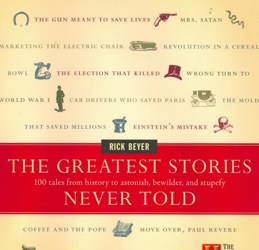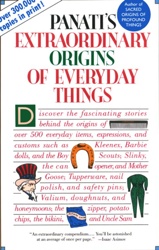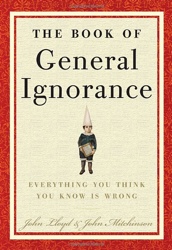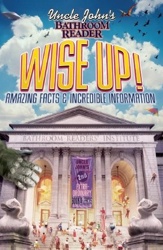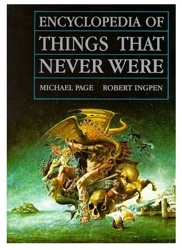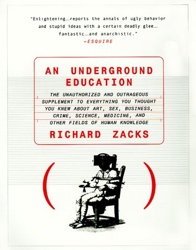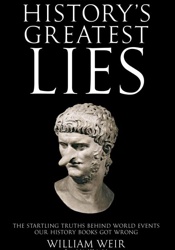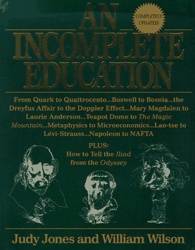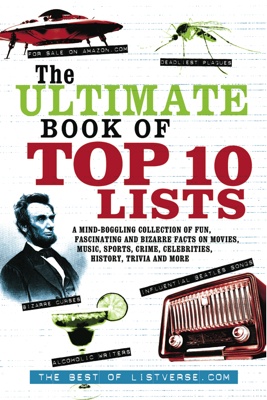 History
History  History
History  Weird Stuff
Weird Stuff 10 Wacky Conspiracy Theories You Will Need to Sit Down For
 Movies and TV
Movies and TV 10 Weird Ways That TV Shows Were Censored
 Our World
Our World 10 Places with Geological Features That Shouldn’t Exist
 Crime
Crime 10 Dark Details of the “Bodies in the Barrels” Murders
 Animals
Animals The Animal Kingdom’s 10 Greatest Dance Moves
 Movies and TV
Movies and TV 10 Box Office Bombs That We Should Have Predicted in 2025
 History
History 10 Extreme Laws That Tried to Engineer Society
 History
History 10 “Modern” Problems with Surprising Historical Analogs
 Health
Health 10 Everyday Activities That Secretly Alter Consciousness
 History
History 10 Dirty Government Secrets Revealed by Declassified Files
 Weird Stuff
Weird Stuff 10 Wacky Conspiracy Theories You Will Need to Sit Down For
 Movies and TV
Movies and TV 10 Weird Ways That TV Shows Were Censored
Who's Behind Listverse?

Jamie Frater
Head Editor
Jamie founded Listverse due to an insatiable desire to share fascinating, obscure, and bizarre facts. He has been a guest speaker on numerous national radio and television stations and is a five time published author.
More About Us Our World
Our World 10 Places with Geological Features That Shouldn’t Exist
 Crime
Crime 10 Dark Details of the “Bodies in the Barrels” Murders
 Animals
Animals The Animal Kingdom’s 10 Greatest Dance Moves
 Movies and TV
Movies and TV 10 Box Office Bombs That We Should Have Predicted in 2025
 History
History 10 Extreme Laws That Tried to Engineer Society
 History
History 10 “Modern” Problems with Surprising Historical Analogs
 Health
Health 10 Everyday Activities That Secretly Alter Consciousness
Top 10 Best Books For Inquiring Minds
We have done a number of previous book lists that have featured some very popular books. It seems, with Christmas just around the corner, that we ought to do a special list of books that are perfect as gifts for the kinds of people that frequent out site – people seeking after new knowledge and trivia. This list is books is hand picked by me for no reason other than I have either read them and enjoyed them, or they have been extremely big sellers amongst our readers. Be sure to buy some for your friends or loved ones, or buy one for yourself for some reading over the Christmas break.
This is history candy — the good stuff. Here are 100 tales to astonish, bewilder, and stupefy: more than two thousand years of history filled with courage, cowardice, hope, triumph, sex, intrigue, folly, humor, and ambition. It’s a historical delight and a visual feast with hundreds of photographs, drawings, and maps that bring each story to life. A new discovery waits on every page: stories that changed the course of history and stories that affected what you had for breakfast this morning. Some surprising things you will encounter: the Pilgrims landed on Plymouth Rock because they ran out of beer, Three cigars changed the course of the Civil War, and Some Roman officials were so corrupt that they actually stole time itself.
If you enjoy trivia and unusual facts, then Charles Panati’s Extraordinary Origins of Everyday Things, is the perfect book. I have read other trivia books and I can say without hesitation that Mr. Panati produces the best of the genre. Many trivia books list a dry and uninspired fact sheet. Panati, however, avoids this common pitfall and instead entertains us with unusual and well researched trivia about the history or origin of many everyday items and customs. I own this book and highly recommend it – it has even come in handy as a research tool for some of our previous lists.
Did you know there’s a secret daily flight from the United States to Cuba? Or, that in 1966, the U.S. government smashed a bacteria-laden light bulb inside the New York subway system? Thomas Eaton’s Book of Secrets reveals hundreds of clandestine, covert, surreptitious, furtive, hush-hush, and taboo pop-cultural and historical curiosities, from government cover-ups to marketing tricks to Colonel Sander’s secret recipe. Practical secrets are also revealed, such as how to obtain a flight upgrade, speak in public, or win friends and influence people. Production features include a Kivar cover with rounded corners and foil stamping.
If you like our lists on myth debunking and fascinating facts, you will love this book. This surprisingly lengthy book is jam-packed with real answers to a number of less-than-burning questions-camels store fat, not water, in their humps; only five out of every 100,000 paper clips are used to clip papers; the first American president was in fact Peyton Randolph-that you nevertheless may be embarrassed to have completely wrong. Although some of the entries rely on technicality more than actual excavation of obscure fact (Honolulu is technically the world’s largest city, despite the fact that 72% of its 2,127 square miles is underwater), these page-length entries prove entertaining and informative, perfect for trivia buffs and know-it-alls; it also makes a fine coffee table conversation piece and a handy resource for prepping clever cocktail party banter.
King Tut was buried with 145 pairs of loincloth underwear; the average newborn baby spends 113 minutes a day crying; Jimi Hendrix and Neil Young stole a truck to get to Woodstock in time to perform; players on the Chicago White Sox haven’t worn white socks since 1948; garlic and onions are both members of the lily family. These are but a few of the fascinating tidbits in this follow-up to the best-selling Uncle John’s Bathroom Reader Extraordinary Book of Facts. Handily organized into hundreds of topics from sports and entertainment to word origins and science, the book is equally useful for short stays or extended visits.
From primordial nothingness to this very moment, A Short History of Nearly Everything reports what happened and how humans figured it out. To accomplish this daunting literary task, Bill Bryson uses hundreds of sources, from popular science books to interviews with luminaries in various fields. His aim is to help people like him, who rejected stale school textbooks and dry explanations, to appreciate how we have used science to understand the smallest particles and the unimaginably vast expanses of space.
This comprehensive compilation references myths and fantasies from around the world and spanning human history. Detailed yet succinct, the very readable articles are collected under seven topics and arranged alphabetically by subject. The diverse coverage examines myriad imagined powers and creatures from historical, sociological, cultural, and artistic perspectives, and while many of the ghosts, wizards, gremlins, gods, fairies, and so forth are familiar, many more, e.g., Hyperborea, Alulei, and Phaeton, are not. Each article summarizes the identity, definition, and aspects of the entity, drawing on material derived from classic studies in myth and lore.
True to our love of all things obscure and bizarre, here is An Underground Education. Forget the history you were taught in school; Richard Zacks’s version is crueler and funnier than anything you might have learned in seventh-grade civics–and much more of a gross-out, too. Described on the book jacket as an “autodidact extraordinaire,” Zacks is also the author of History Laid Bare, making him something of an expert guide through history’s back alleys and side streets. There’s no fact too seamy or perverse for Zacks to drag out into the light of day, from matters scatological and sexual to some of history’s most truly bizarre episodes. Curious about ancient nose-blowing etiquette? What about the sexual proclivities of Catherine the Great? Throughout chapters such as “The Evolution of Underwear” and “Dentistry Before Novocaine,” Zacks proves a tireless debunker of popular myths as well as a muckraker par excellence.
In this book, Weir neatly dispatches many of the most treasured stories to be found in the schoolbooks and repeated elsewhere. He relates that Emperor Nero did not fiddle as Rome burned because the fiddle or violin wasn’t invented until the 16th century (you heard that here first!) His enemies are the source of that story and he had plenty of them. Paul Revere did his best to alert the extensive Colonial militia that the British were coming, but they got to him first, holding him for awhile as the word was spread by a variety of means. The Bastille was stormed because the crowd wanted to get at its store of gunpowder. Its political prisoners actually lived in comfortable quarters. All things considered, this book provides a very interesting new look at history.
You’ll find everything you forgot from school–as well as plenty you never even learned–in this all-purpose reference book, an instant classic when it first appeared in 1987. Think of this book as one-stop shopping for your brain. So you never studied philosophy? Turn to page 306. You can’t tell Keats from Shelley? Page 195. Spanning 10,000 years of knowledge, featuring 3,684 things you should have learned but didn’t (or forgot somewhere along the way), it covers world history, art history, economics, literature, science, political science, religion, psychology, even film (what’s the big deal with Citizen Kane? See page 174). We have sold hundreds of copies of this book through the site – it is extremely popular.
This book is added as a bonus out of humility! If it wasn’t our own book it would be number one. The Ultimate Book of Top 10 Lists combines all of the best lists from Listverse and presents them in a very easy to read format. In addition to enjoying many of our lists at times when the computer is not available, every entry in the book has been professionally edited and checked. This is the perfect gift for the person who has everything – and Christmas is just around the door! Get shopping!
If, after going through this list, you are still not sure you want to buy any of these books, check out Amazon’s trivia section for many many more.
